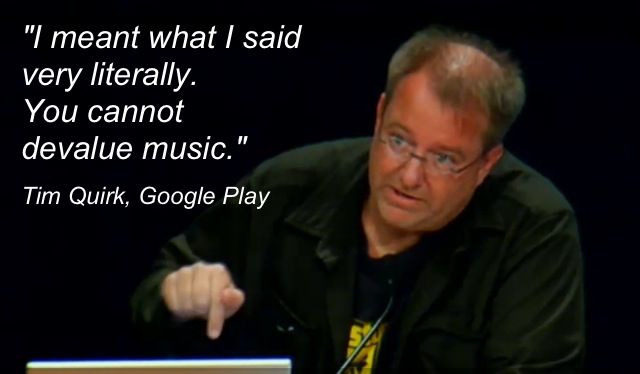Duty Now for the Future of Music: A Report from the Future of Music Coalition Summit
Five out of the last six fall seasons I have been lucky to attend one of the most interesting new media industry conferences in the United States. Taking place in Washington, DC, the annual Future of Music Coalition Summit always provides substantial exposure to the numerous debates and struggles of many members of a legacy industry have had as a future of decentralized broadband, servers and users have wholly consumed it. Hosted by the Future of Music Coalition, a Washington-based institute founded in 2000, two years after Napster began a process that would disintermediate the recording industry, the coalition has always held an explicit interest in understanding and influencing the connections between business, arts, technology, and policy. This interest in establishing a dialogue between stakeholders has been reflected in every single summit, and this one was no different. Indeed, this is what makes the annual meeting unique. Not only does the summit’s location in DC allow the occasional FCC commissioner, Senator, or Congressional aide access the stage, it also allows representatives from numerous organizations to appear and make impassioned cases both for and against policies, technological innovations, and business models.
Such was the case this year, when attendees gathered at Georgetown University from October 28-29 for the 12th annual summit. While many of the debates surrounded seemingly arcane but important discussions about direct licensing deals, the importance of establishing a terrestrial broadcast right, or the need for better metadata, these were presented alongside more accessible sessions on the prospects for music journalism and seminars on entrepreneurialism for bands. However, the most controversial discussions surrounded streaming services. Unlike years past when streaming services were viewed with optimism as a potential legal solution that could pay musicians and provide an easy alternative to piracy, royalty rates from the likes of Spotify were heaped with significant amounts of condemnation for devaluing music. Canadian songwriter and President of the Songwriters Association of Canada Eddie Schwartz noted that the fact that a million streams on Spotify begets songwriters close to $35 meant that the service was hardly operating in a just manner. As a result, his organization and others are in the beginning stages of developing a new Fair Trade system of popular music where every aspect of the value chain would be certified based on issues such as whether or not that link was fairly compensating its workers and how transparent it is. Later that day, Tim Quirk, Head of Global Content Programming of Google Play, gave an impassioned defense of streaming and new music services, arguing that they don’t devalue music because ”it is impossible to devalue music” since it is art and, therefore, doesn’t have any inherent price floor. And so the back and forth went. Standing somewhere between the two was the infamous manager, Peter Jenner. While declaring “that you can’t control the Internet,” Jenner also reminded the crowd that even with the Internet effectively collapsing, in the history of popular music “most artists have been unsuccessful.”
The summit offered no singular solution or model to success, which is not surprising as there is no single way forward for every musician or service alike. As the ecosystem has metastasized and one music startup after another has seemingly come and gone, perhaps the most interesting insight that the summit continues to offer is that optimism for the future persists. Take, for example, the summit’s most inspiring panel: “Indie Missions: Nonprofit Models for Supporting Independent Music.” Four speakers took the stage for 50 minutes to explain how local musicians, non-profits, educators, and policymakers have begun to both conceive of and invest in Colorado to produce better, more vibrant local and regional music scenes. Involving Dani Grant of SpokesBUZZ, Storm Gloor of the University of Colorado-Denver, Bryce Merrill of the Western States Arts Federation, and a vegan hip-hop MC who raps about the benefits of local gardens named DJ Cavem, the panel provided insights about how a scene can take concrete steps to help creatives that go far beyond the invocation of the latest Richard Florida proclamation. One distinct offering was a program involving mid-sized cities which would like to connect their talents with each other. Titled ”Bandswap”, the program worked with 14 bands and eight cities so that local musicians and industry players could operate in such a way that they share each others resources, industry contacts, and community connections to plan tours and make their local resources regional. It is an example like Bandswap that is the reason I continually return to the summit. In today’s music industry, it’s one thing to hope for a better future. It’s a much different thing to see evidence of it.





